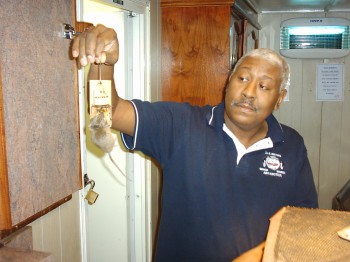John Cooper (Centre of Excellence for Invasion Biology, Stellenbosch University) and colleagues write in Aliens the Invasive Species Bulletin (Newsletter of the IUCN/SSC Invasive Species Specialist Group) on the risks of inadvertently moving rodents between seabird islands, including those with breeding populations of ACAP-listed albatrosses and petrels such as within the Prince Edward and Tristan da Cunha Island Groups.
The paper’s abstract follows
“Introduced House Mice Mus musculus were inadvertently back-loaded to a supply ship from mouse-infested Gough Island in the South Atlantic Ocean before the ship proceeded to place a party ashore on mouse-free Inaccessible Island. It is recommended that cargo from rodent-infested islands, especially that containing waste materials, be routinely inspected and treated on shore with rodenticides before back-loading commences. This is essential to reduce the risk of introducing rodents to departing vessels and then to rat- and mouse-free islands visited subsequently on the same voyages.”

Chief Steward Neville Genisson with the House Mouse caught aboard the S.A. Agulhas
Photograph: S.A. Agulhas
Reference:
Cooper, J., Cuthbert. R.J. & Ryan, P.G. 2013. An overlooked biosecurity concern? Back-loading at islands supporting introduced rodents. Aliens 33: 28-31.
John Cooper, ACAP Information Officer, 09 November 2013

 English
English  Français
Français  Español
Español